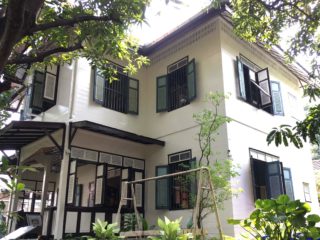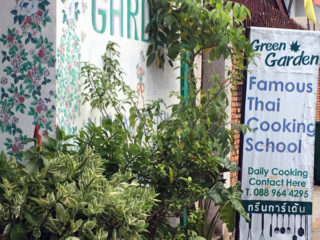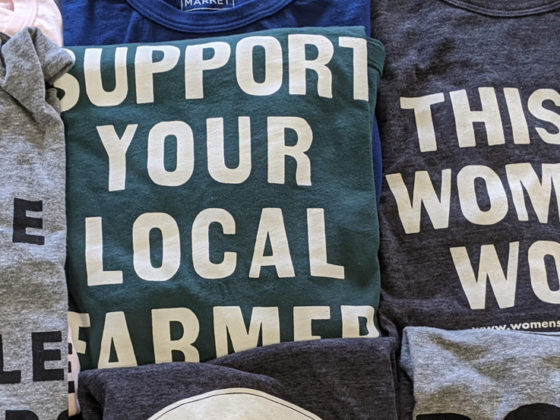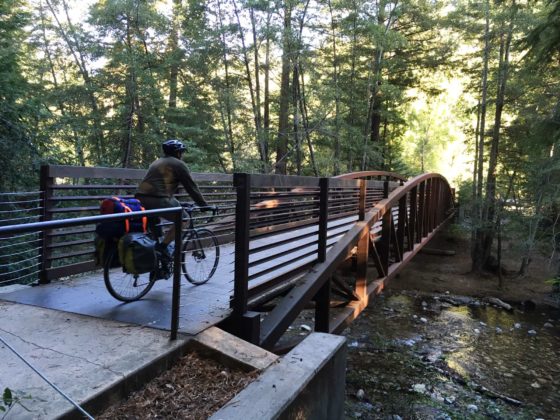We visited Southeast Asia in winter 2018 and thoroughly enjoyed our journey focused on friends, culture, relaxation, and food. From the friendly citizens who were always ready to help a couple of confused tourists, to the unique and delicious foods we sampled during our two-week adventure, we returned from our trip with an over-stuffed backpack of fun memories and tasty good times.

Mr. Spice and I traveled from California through Taipei on our way to Thailand’s biggest and most bustling city—Bangkok—where we joined our globe-trotting friend David Thompson. Our friend Dave is the “Dave” in DavesTravelCorner.com, one of the oldest travel sites on the internet that features journals, guides, and useful online information for exploring the world IRL. With his lengthy experience writing about global travel and publishing guides, stories, and photo essays from all the corners of the world, he’s an excellent guide and concierge for visas and other logistics. He also encouraged us to change our itinerary and visit Myanmar before this long-closed country inevitably changes and becomes more westernized. We’re grateful for the suggestion that helped us begin to discover this interesting and complex country filled with welcoming and warm hearted people.

It’s my first visit to this part of the world, so everything was new and exciting. From traveling on Bangkok’s slick SkyTrain public transportation system to learning how to prepare traditional Thai dishes at Green Garden Cooking School, we found the differences and similarities between our cultures delicious and interesting. What an electrifying experience to explore new flavors, visit amazing places, and meet such welcoming people across our entire trip. Truly, the world would be a more kind and interesting place if we all of us explored outside of the lines that seemingly enclose our lives. As Mark Twain wrote in Innocents Abroad/Roughing It, “Travel is fatal to prejudice, bigotry, and narrow-mindedness, and many of our people need it sorely on these accounts. Broad, wholesome, charitable views of men and things cannot be acquired by vegetating in one little corner of the earth all one’s lifetime.” Passport up to date? Let’s go!
Transcript:
[ANNOUNCER] Back in the mid 90s, David Thompson fell in love with traveling while on a Cal Poly organized trip to Nepal. He shared his experience online by creating the website, DavesTravelCorner.com. It’s now evolved into one of the oldest travel journal sites on the Internet with more than 600 contributors. KCBX’s Rachel Duchak met up with Dave during a visit to Bangkok to learn more about his experiences and score a few world travel tips. [RAD] How is this? Is this better? Yeah, this looks better. Okay. Record button. Let’s record now. Hi. We are here with Dave Thompson at the Bangkokian Folklore Museum here in the middle of Bangkok. Where exactly are we Dave? [Dave Thompson] We are not far from the banks of the Chao Paya River in old Bangkok. [RAD] Okay, and you can hear in the background, you can hear some Bangkok traffic. You can hear some guides off over our shoulders, and people moving about and visiting this beautiful, lush, lovely space with some classic period buildings from the early 20th century. This my first time in Southeast Asia. But you and my husband, Toni, have traveled together. And you are from San Luis Obispo. You went to university there at Cal Poly State University, [DT] That’s correct for four, actually, five years, five years. Maybe it was six. [RAD] You have one of the longest running travel journal websites and travel information sites on the Internet. Is that correct? [DT] That is correct. [RAD] Can you tell us about what got you started with traveling and why you decided to make a website to share information? Tell us about your DaveTravelCorner.com website. [DT] Sure. So I started the site in late 96. It began based on my love of travel, and the trip that really kicked it off was the trip to Nepal in 1996. It was a college sponsored trip, and I met some great people on that trip, and it was my first big trip overseas. And I realized after Nepal that I had a craving for international travel. I just the experiences, the culture, the diversity, the religion, the foods, people burning bodies along the banks of the river. I mean, just stuff that you don’t see in the United States of America. It sounds a bit crazy now, but the hardships that I experienced on that trip really made a lasting impression on my life. I ended up being carried down on the back of our guide. I got really bad altitude poisoning and food sickness all night, and then a woman carried me for the rest of the day on her back. She had a backpack. She would take the backpack ahead, drop it off on the trail, come back for me, pick me up. And did that all day long. [RAD] She’s a very strong woman. [DT] I physically was unable to walk, throwing up every 20 minutes. It was it was a nightmare when it was happening. [RAD] So in the face of that really challenging moment of your first big international travel, you’ve got the bug though, it didn’t scare you off. [DT] Yes, I combined my love for writing, which I already had been nurturing before the trip, with my love of international travel, which came later. And so just early stages of the internet. Websites weren’t what they are today. Software was very rudimentary for maintaining websites, and I just combined the two, and I created a basic website. Had some photos of my Nepal trip. I had some stories. Just very, very, very rudimentary. [RAD] And how did you go from that rudimentary website development back to over 20 years ago to now? You have so many posts. You have you Dave’s Travel Corner collects travel journals from other writers and yourself. [DT] Yes. [RAD] Tell us more about your website and how you’ve gone from the really small little start with the Nepal trip to something–it’s now a database, isn’t it? A database of information and journals withinternational information. [DT] There’s information on almost every country in the world. So it started as a hobby, and then, despite the name, I didn’t want it to be only about myself, and I realized that in order to grow the website, I needed contributions from others, and so I created an entire back end system and admin system, and it allows users and travelers and photographers to upload content on their own, their own journals, their own photography. So the site has interviews with people in the lifestyle and travel, business or industry or making contributions, valuable contributions, photography, videos. Yeah, it really is an international database. [RAD] Can you tell us about some surprising things you’ve learned either by traveling or by developing your travel website? [DT] Something 20 years ago, when I was just starting to travel, there’s a lot of countries I wasn’t sure I wanted to travel to, just because of news and media, and I just even countries that were in conflict. But then, actually, after traveling to these countries, I realized, by and large, most of these countries are safe. There could be hot spots in the country, and you try to avoid those places, but there are plenty of places where it’s perfectly safe to travel, and the news would lead you otherwise. [RAD] Do you follow the State Department’s guidelines on avoiding countries, or how do you learn about hot spots and where they’re at? [DT] So yeah, I do reference the State Department. It’s not my end all rule for whether I’m going to visit a country or not, and often those notices are blanketed on the country. They can be more specific. So I look for the specifics, and I use social media to find the specific areas that I should avoid. Often, I have friends who have recently visited countries that are, quote, hot spot countries, and so first hand knowledge is is invaluable that way. Just for an example, North Korea, Yemen. [RAD] Have you been to North Korea? [DT] Not yet. I’ve been on the border. It’s on the list. Yemen. I had a friend who had just recently returned from Yemen, so he gave me good details there. Iraq as well. A couple friends who went in the last year. And so they’ve given me, I mean, things change a lot. So you’ve got to stay updated on what’s the current situation in these countries. But do the research. [RAD] What are other key points that you have for travelers, besides make sure that you understand where you’re going and do the research for safety sake? [DT] Have your first night accommodation already set for you. Okay, you arrive at the airport. You may be arrive at the airport late. If you don’t want to be looking for a hotel, you want to have that set. If you’re an independent traveler, have that set, but then let the rest of the trip develop as it is. Logistics always takes time. [RAD] What do you mean by that? [DT] So if you do research ahead of time on logistics, bus, transportation, trains, transportation, flight transportation, that will save you time in the long run, when you’re actually in the in the country. One of the most valuable apps that I use is Google Maps, and you can preload Google Maps of an area before you arrive. You don’t need to be on Wi Fi or have a connection to use it, and it’s just so easy. It tells you what direction you’re going. This tells you where you are. That’s probably my number one app. [RAD] I would agree. This is the first international travel I’ve done while having Google Maps. And when we left Myanmar the other day, I had already found our hotel when I still had internet. And then I could see where I was with my blue dot, where my location was. And that way I could tell when we hopped in the taxi that, yes, indeed, our taxi driver was taking us on the most direct route. [DT] And just another example of the maps is I was also in Myanmar a couple weeks ago, and I was trying to find my way back to the guest house. And Google Maps has the most tiniest routes through little villages I never would have found otherwise, if I had not been following this route back to the guest house. So I was stuck behind a herd of cattle. I was riding through dusty roads, through small villages, because my little Google Maps is telling me to go that way. And it’s just, I had experiences, I met people and just stuff like that I never would have had otherwise. [RAD] How do you choose which countries to go to? How many countries have you visited? [DT] So I’ve been to over almost right around 140 and then there’s 164 including territories. I don’t always return to the same places unless I really enjoy the experiences, the country. So I often choose places I have not yet been to. I love a combination of urban and rural experiences. I love mountains. I love tropical fruit. So these all factor into where I go. [RAD] Okay, we’ve got to talk about the fruit. My husband Toni told me that, early on in the internet, when we were still using dial-up modems. [DT] 56k dial up modems. [RAD] you would send photographs, oodles and oodles of photographs of these unique fruits that you found at the markets, at the night markets, and that you would send pictures of the fruits, and then you would send pictures of the piles of the seeds from the fruits that you already finished eating. What’s the deal with why you love fruit so much? [DT] Unfortunately, I probably clogged up his internet connection with space back in the early days with these large photographs. It’s one of my loves. I’ve always been drawn to fruit. I can remember visiting Little Vietnam in California and Little Saigon up in San Jose and in Orange County with my father, and just going to tiny fruit shops that were operated by Vietnamese. And this is back in the early days. So agriculture has changed, and now we have a lot of the fruits in the United States that were not allowed back in the day, so we get mangosteens and all of that now, but back in the day, it was canned lychees and just canned fruits. And I thought it was really cool. And I just, I like fruit that has a good balance between sweetness and tartness and sour. And cheromoya is probably one of my favorite fruits. [RAD] Cherimoya is fantastic. [DT] And I know there are cherimoya farms in San Luis Obispo and in Santa Barbara, and they do very well on the Central Coast. [ANNOUNCER] You’re listening to Issues & Ideas on KCBX. We’ll be back in just a moment with more of this interview from Thailand. [MUSIC] You’re tuned into Issues & Ideas. When we last left you. Rachel Duchak was in Bangkok getting some travel tips from David Thompson of DavesTravelCorner.com. [RAD] How big of a bag should you bring? I heard from your compadre Rick Steves, who is also a traveler, that he recommends bringing a book bag of clothes rather than like a giant backpack or a wheeled luggage. Why is that important? [DT] It’s important for a couple of ways. One is, I want to carry it with me. I don’t want to check it in onto the plane. I’ve had bad experiences numerous times where luggage has been lost or delayed by checking it on the plane. Taking taxis, I like to have the luggage with me, rather than in the back seat of the trunk. [RAD] Why is that important? [DT] If I need to leave quickly, my luggage is with me. I don’t want to be fooling around with trying to get the luggage in the trunk and having that opened and just having something light portable that I can carry around. And I do travel with a book bag-size backpack. And so I have a list on my website for cold weather travel [clothes] fitting in a small backpack, or versus warm weather travel. And you can do both. I went to Antarctica with a just a little bit bigger than a school size backpack. [RAD] What do you do if you pick up souvenirs? And do you pick up souvenirs? Or do you just take photographs? [DT] I used to, but now I’ve learned through my travels that just experiences mean so much more to me than things. I collected a lot of things when I was traveling. It’s just, “I gotta have this, I gotta have this souvenir. I’m never going to be back here. It’s it’s going to look good.” So I have enough of those now. I’ve given away a lot of those, actually, because they are just things, and they don’t really improve my life in any major way. But just the memories and the experiences that I’ve had from travel, that sticks with me, and that’s important to me, and that’s thing, that’s thing. That’s what I can share with other travelers and other people interested in going places. It’s conversation. [RAD] Where do you want to go next? [DT] I have a short list of places. I’d love to go to Afghanistan, Pakistan,more of the “Stans” like Uzbekistan and Tajikistan. Iraq is on the list. Saudi Arabia is on the list, one of the world’s most difficult visas for Westerners. I hear. Tahiti is on the list, Mongolia and Rwanda and Uganda. Those are my top destinations that I’ve not yet been to. I’ll give you some of my top destinations I have been to, if that’s of interest. [RAD] Please do. [DT] Sure. So that’s usually a continent by continent question for me. So Antarctica, definitely. I love Iceland, but going to Antarctica just sets the bar so much higher. I mean, everything’s on a different level in Antarctica. Australia, continent, definitely in New Zealand. [RAD] Have you been to Tasmania? [DT] I have not made it quite down to Tasmania. I’ve been to Kangaroo Island. That’s probably the closest I’ve been south. I love the wine in Australia and the desert, just the diversity of terrain, just like in Peru. So South America, definitely Peru. It speaks to me because the diversity of topography, deserts, jungles, oceans, food, the culture, friendly people, just easy to get around, affordable. So affordability is also a factor I look at where I travel. Europe: I love Macedonia and Montenegro on the eastern side. Europe’s southern-most fjord is in Kotor in Montenegro. Islands with churches UNESCO, World Heritage villages perched on the sides of the hills. Just a gorgeous spot. Western Europe, I mean, Switzerland, France, Italy, yeah, it’s so many. South America, Argentina, Peru, Ecuador, for sure. And Asia, my heart’s in Thailand. But Bangladesh, if you’re looking for an experience that’s completely different than other parts of Asia. It’s the world’s most crowded country by capita geography. We were looking for tigers. It’s just, as a Westerner, you’re really examined by the locals. So walking through the streets of Dhaka, people just gather around you and just stare at you and form a circle around you and just look at you quiet, and then you start talking. They start talking. It breaks the ice. They’re very common. Just a neat experience. Middle East. I love the Middle East. I love Oman and Jordan and Bahrain. Probably Oman and Jordan would be the highlights there, [I’m] looking for a place that combines both the natural world and the human world, and Petra is one of those places that is very, very unique, and I’ve been twice, fortunate to have visited. So that combines history, just inspiration, a lot of hiking. I love the outdoors. [LAUGHS] [RAD] Do you always travel with hiking boots? [DT] Depends where I’m going. I did a 10-day trek in Jordan in the middle of the summer. Actually ended up having to consume my own urine, and the guide had to consume his own urine as well. We ran out of water. It was in the middle of summer. It was a really stupid thing to do. That was just for the day one. After that we were okay, okay. [RAD] That’s leading me to my next question. What do you do when things go wrong? [LAUGHS] [DT] Yes. Well, okay, here’s another example. My wife and I were in Yemen. We crossed the border at night, and we ended up somehow at an Omani wedding that was being held in Yemen, and they didn’t have any place for us to stay, or they weren’t comfortable with us staying there, so we were walking out to the beach. We’re going to sleep outside on the beach. And then a friend of the police chief of the next town came over and said, “Oh, my friend’s a police chief. He’ll let you stay with his house.” And so you go with the flow as much as you possibly can. And that turned into a really cool experience. He asked us which guns we wanted to sleep with. He had AK-47s lined up around his room. We were on the marble floor. But Yemen has, I believe, the second highest gun ownership of any country in the world, behind the United States. In Yemen, the guns are obvious. You see women herding goats and sheep with AK’s across their backs, and you see it, it’s visible in Yemen, where it’s not always in other countries. And so you try to go with the flow as much as you can. You learn after travel, after traveling a lot, that things will go wrong, and usually involves logistics. You got on the wrong bus, you’re going to the wrong spot. Someone maybe tries to scam you. Doesn’t happen that often, but they do go wrong, and you try to, you deal with each situation on its own merit, and try to get out of it and find something positive from it. So “it depends” is a short answer. [RAD] And one of the reasons why you said it was important to visit this country now is that it is recently opening up. And you had said that it seems like going back in time 50 years. Can you compare for us Thailand versus Myanmar? [DT] Yeah, there’s a dramatic difference between tourism in both countries. Thailand continues to see a huge increase in tourism, especially from Asian tourists. And parts of Thailand feel more westernized, even in Bangkok, there’s that. Whereas Myanmar six, seven years ago, a cell phone was costing $1,000, we were told by locals. And so Myanmar has opened up just recently, as you said, and it hasn’t been overridden, if I can use that word, by tourism, by mass tourism yet. And so when you have mass tourism, that affects the interactions you have with people in the tourism industry. It affects the prices, it affects how people relate to you. And so in and Thailand, is very open to tourism, and has been on the tourist route for a long time, whereas Myanmar has not. So you don’t have that, what you have in Thailand, what you have in Myanmar right now. [RAD] As a woman, I noticed the difference in [LAUGHS] We have a fountain that has just started to our left here! [DT] And pigeons started flying. [RAD] This might be the end of our interview. [ANNOUNCER] The Fountain may have ended that interview, but you can learn lots more about Bangkok and cities all over the world at Dave’s Travel Corner, and you can hear Rachel Duchak every morning as the host of Morning Edition here at KCBX. Well, that’s our show for this week. You’ve been listening to Issues & Ideas on KCBX Central Coast Public Radio.
(This transcript has been edited for clarity and flow.)

